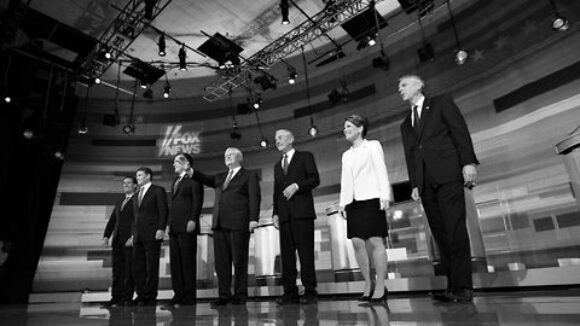'A Choice, Not an Echo' on Forced Unionism
While four of the current 2012 GOP presidential hopefuls have signed and returned surveys pledging 100% support for Right to Work if elected, so far front-runner Mitt Romney and two others have not. Credit: Fox News Right to Work Committee Intensely Lobbies Presidential Hopefuls (Source: January 2012 National Right to Work Committee Newsletter) As the 2012 presidential primaries and caucuses begin this month, millions and millions of Americans are looking for a clear alternative to the Obama Administration's relentless promotion of compulsory unionism. Ever since he became U.S. President three years ago, Barack Obama has eagerly championed Big Labor power grabs in Congress and selected forced-unionism zealots for leadership positions at the National Labor Relations Board (NLRB), the Labor Department, and other federal bureaucracies. But polls show the vast majority of all Americans who regularly vote in federal elections believe the Obama Administration is just plain wrong to favor forcing workers to pay union dues to get a job. And opposition to pro-forced unionism federal policies is especially intense among likely voters in the states where the crucial first contests for the 2012 Republican presidential nomination are taking place. Surveys recently conducted for the National Right to Work Committee by respected pollster Kellyanne Conway confirm that likely voters in the New Hampshire and South Carolina primaries this month overwhelmingly agree that federal labor laws should either protect the Right to Work, or be scrapped completely. 'Will the Next President Of the United States Stand up to Big Labor?' Ms. Conway's scientific survey, conducted November 18-21 by live interviewers at a computer-assisted telephone facility, found that 72% of likely Granite State primary voters believe federal law should "definitely not" allow "labor union officials to have a worker fired . . . for not paying union dues or fees." An additional 9% said federal should "probably not" allow that.
